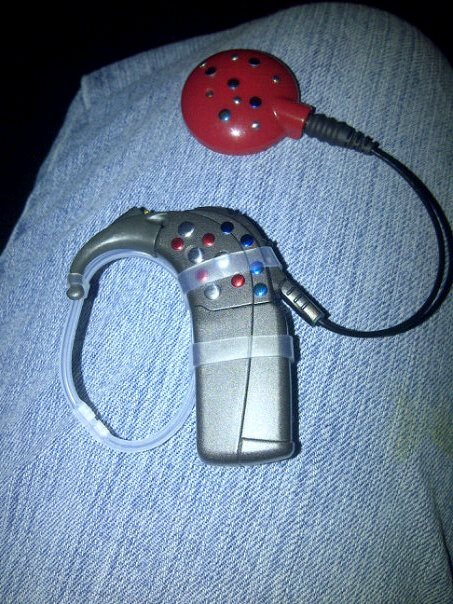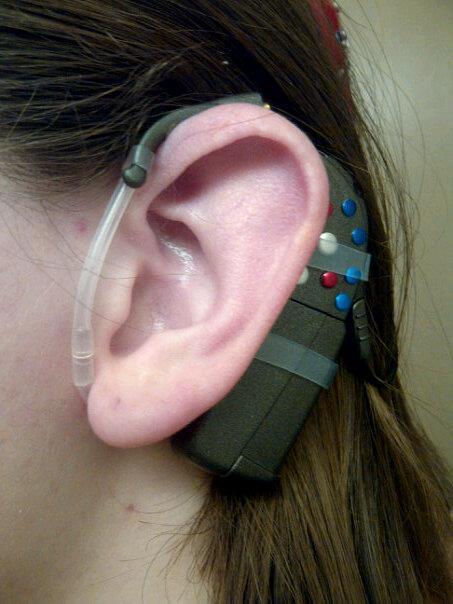Thank you very much for your response. I have spoken to a couple of neurotologists and several audiologists, but I have not yet been formally evaluated (CT Scan) for CI viability. At one point this year I was signed up to participate in a Med-El short electrode CI clinical trial, but I backed out to explore the Esteem. My current audi, who I trust very much and who works with a wide variety of patients, has suggested that I am trending towards a CI within the next decade. Most likely, I will go bimodal, with the CI in 1 ear and a hearing aid in the other, which will allow my brain to maps sounds a little quicker. I am also tempted to opt for a shorter electrode, with an emphasis on soft surgery methods.
Looking at my old audiograms, my hearing loss in the upper pitches was in the moderate-severe range when I was younger. I remember being able to hear myself whistle, and the water in the shower / toilet. Now, at age 32, I bottom out with 110dB of loss at 4,000 Hz. Word-recognition scores around 30% at 65dB. Due to the sharp ski-slope shape of my loss, hearing aids just aren't doing it for me. I have spent probably 15 years with profound mid-high frequency loss, which means that I am at risk of nerve-cell death since it has been so long since these cells were properly stimulated. I know full well what consonants are supposed to sound like, but the question is whether my brain will properly receive the stimulation to the cochlea from the electrode array in these frequencies.
I've glanced at your post history, and it sounds like your situation is somewhat similar to mine. Can I ask you about your hearing history and results post-implantation? How well can you converse on the phone? In noisy situations such as a crowded restaurant? Thanks in advance.
First.. I'm not so sure that using a Hearing Aid/CI combo will help you map out sounds quicker. It's an individual ear thing and from what I've observed, it can actually slow you down in terms of development. The combo can give you a nice mix when put together, but you are also more likely to hold on to the hearing aid and not fully develop your CI side. You have to be willing to forgo the hearing aid and concentrate on the CI for long periods of time. Plenty of people fail to recognize this and don't realize a CI is not like a hearing aid. It isn't a "put it on and what it is is what it is." What you experience with a CI can change drastically when you develop it fully.
Second... it was 25 years between the time I first lost my hearing and my activation. My loss initially, beginning at 7 years old, was in the moderate-severe... so I was still able to hear consonants with a hearing aid. Those faded away gradually over the years until I really had no speech discrimination by High School.. just really good speech reading skills combined with making the most of the hearing I had so that it was actually deceptive at how "well" I heard. At activation.. all of those consonants like S, SH, CH were immediately there after all of those years. So I wouldn't worry too much about those 15 years. I know plenty of others with the same story that went without even longer.
Sound sounded like sound immediately at activation.. without another ear to rely on. I am unilateral only so all the work is done by my right, implanted ear. Initially, it sounded like AM radio. As my programs settled in and my mappings tweaked things.. it began to sound full and normal.
I was back on the telephone after a month... after 25 years. It was Father's Day and I figured, what the hell... I'll just give it a try and just speak to him even if I can't understand him. It was very jaw-dropping to realize that I was actually hearing and understanding him without even trying. No straining and guessing at what was being said. He was blown away, obviously.
Telephone use in general is pretty good. I rate it at about 90%. You learn that you can't blame yourself all the time in a world of spotty cell phone signals. I am not afraid to answer the phone or make calls whenever needed. It's slightly disappointing that I didn't gain this ability back until living in a world where nobody calls anymore. I loved just making calls just to be able to "do it." Business transactions are still done.. so it's easy to make appointments, take care of payments, order Pizza.
Hearing in noise is a challenge for all CI users. Initially, it's very frustrating, especially because it's not just noise, such as at a party.. it's a whole mess of details. You have to force yourself to focus on the conversation you are having. There are a number of ways to deal with it. Advanced Bionics has Clear Voice, which analyzes the sound and removes/reduced the unwanted noise. White noise like fans and road noise is removed. It sounds like the volume has been turned down.. but then when you speak or someone else speaks.. voices are at normal volume. It's pretty cool stuff! I personally don't use it much. Clear Voice with music messes with the dynamics and I listen to a lot of it. I am simply used to taking in a lot of details at once. The program is designed to be used full-time and switching between a regular program and Clear Voice can confuse. It's difficult to describe how and why. You can listen to music with Clear Voice, but it will cut out details. The benefit is it will flesh out the vocals. Clear Voice reduces speech "babble" that you find at parties and restaurants as well.
I'm happy to answer any further questions you may have. It took another drop in hearing to make me consider my options 6 years ago. It was very upsetting and I was in tears at the doctor's office when he suggested it. In retrospect, even prior to the last drop.. I was already qualified for a CI. I just wasted time. It's been the best thing I've ever done for myself. Everyday is still amazing. Those "I can't believe I can hear that" moments never seem to end.



